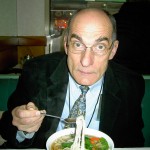Melissa Duclos was awarded the Guston Fellowship from Columbia University, where she received her MFA in fiction. Her short fiction has appeared in Pound of Flash, Blue Skirt Productions, Scéal, and Bodega Magazine. She is the founder of The Clovers Project, which provides mentoring for writers at various stages of their careers, and a regular contributor to the online magazines BookTrib, Bustle, and Mommyish. Her non-fiction has also appeared in Salon, Electric Literature, Fiction Advocate, Cleaver Magazine, Full Grown People, and English Kills Review, and has been discussed on Oregon Public Broadcasting’s popular “Think Out Loud” program. She lives in Portland, Oregon, where she runs a successful freelance editing business, working primarily with authors of fiction.
Melissa, in “Expats,” adapted from your novel Besotted, Sasha recounts her experience in Shanghai when she met Liz and “Love” came along. While it tells the story of their evolving relationship from co-workers to roommates to lovers, a broader theme centers on expats like themselves who “willingly settle in a place where they will always be viewed as outsiders?” How does this fact affect their relationship? What role does it play with regards to each woman’s relationship with Dorian?
A place where you are always seen as an outsider is a place that’s very easy to leave. Expat lives, then, are temporary ones. In the novel, Dorian fights against this by trying to buy an apartment, though it’s not easy for a foreigner to do. Sasha fights against it by trying to build a stable relationship with Liz. But Liz, who is new to Shanghai, doesn’t really understand Dorian’s and Sasha’s urges to create something permanent for themselves. It’s too easy for her to mistake her life in Shanghai for a game, and to treat others as though her actions have no consequences. This ultimately leads to her betrayal of Sasha, which Dorian helps set into motion. Continue Reading →



